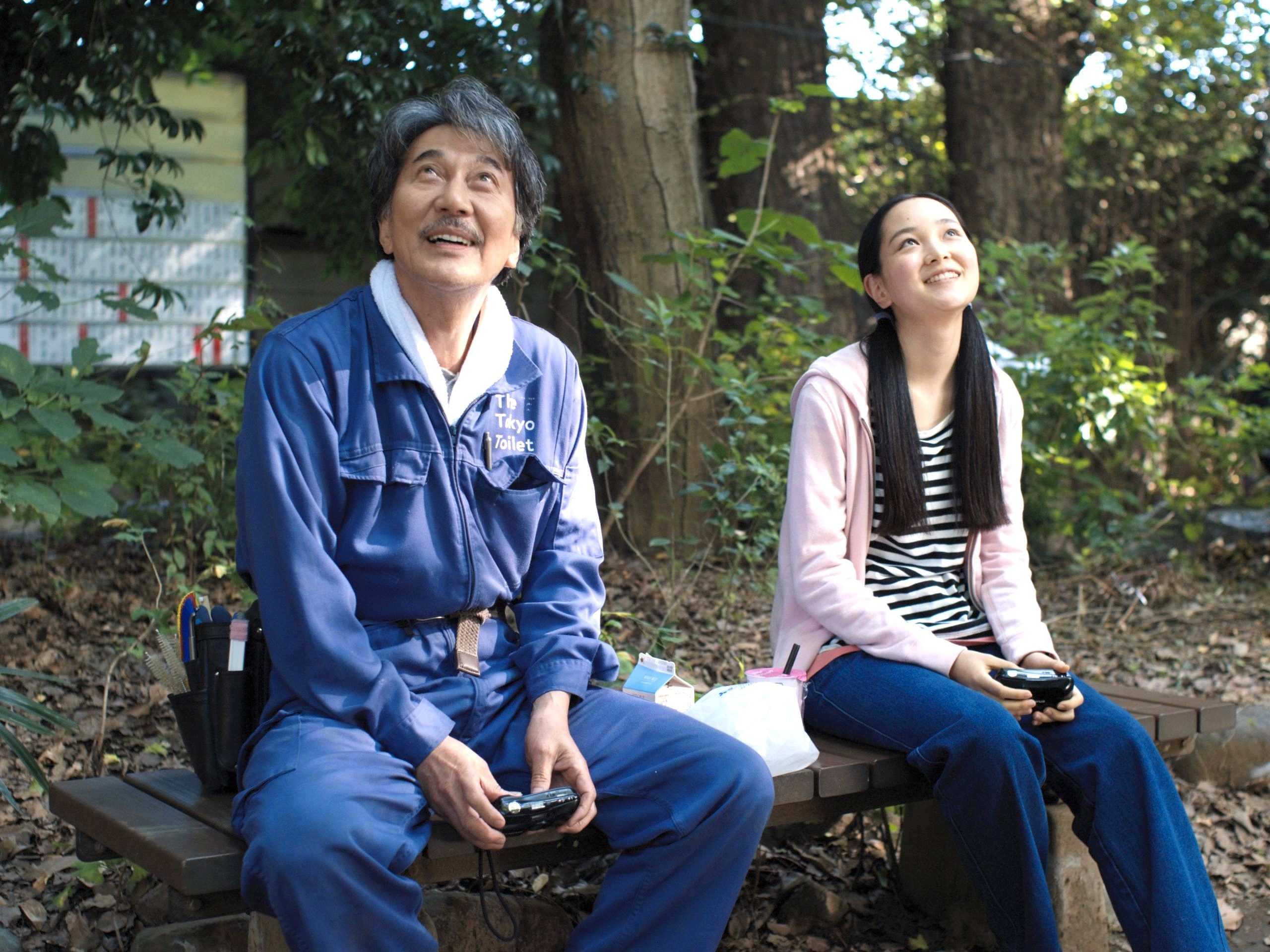Film Review: Perfect Days (2023)

German director Wim Wenders is no stranger to the world of quiet but impactful filmmaking. Movies like 1984’s Paris, Texas and 1987’s Wings of Desire stand out as landmarks of internationally produced independent film and often serve as entry points for those interested in exploring new avenues of what cinema has to offer. His new film, Perfect Days, continues the personal contemplation found in many of the director’s earlier films but differs in that, instead of being seen from the point of view of someone seeking to change or better themselves, its main character is perfectly happy with his life, has no desire to change a thing, and is content with the beauty each day has to offer.
While watching Perfect Days, I realized how trained I’ve become to expect tragedy. It’s almost embarrassing how much we’ve come to rely on traumatic backstories and grave injustices to shape our characters into the versions we’re introduced to on screen. As if on schedule, directors will slowly reveal elements of character development until they decide it’s time for us to finally have the whole story and thus fully understand the motivation of our heroes and villains—and we like it that way. All too often, on big and small screens alike, everyone has a tragic past, is profoundly suffering in some way, or finds themselves on an epic odyssey of salvation or redemption.
Thankfully, and perhaps unexpectedly, Perfect Days subverts the conditioning we moviegoers have succumbed to by offering the story of a simple man with no grand ambitions, no sordid past, and, most importantly, no qualms whatsoever with his life. Hirayama (a brilliant Kōji Yakusho) lives contentedly in each and every moment of his regimented and ordered day and then does so again the day after, and then again the day after that.
As time passes and we set into Hirayama’s routines right along with him, a kind of calm washes over everything we see. Wenders makes it very easy to become accustomed to Hirayama’s repetition and, in my case, even a bit jealous of the simplicity with which he’s able to navigate the loud and chaotic world that surrounds him. Even when small interruptions worm their way into his regimen, he accepts them with a gracious smile and seems happy enoug to indulge these temporary deviations from his path. He’s not a boring man (it would be a mistake to think otherwise), just one who prefers clarity and a definable purpose over spontaneity.
But, despite his monk-like lifestyle, Hirayama occasionally shows cracks in his carefully manicured facade. For example, when he has to work late to cover a co-worker’s (Tokio Emoto) shift after an abrupt resignation, or when his niece (Arisa Nakano) shows up on his doorstep—which in turn brings his estranged sister (Yumi Asō), who disapproves of his way of life and chosen profession—Hirayama is visibly annoyed, angry, and even self-conscious with those around him.
What’s amazing, though, is that where we’ve been trained to expect emotional outbursts or heartfelt reconciliations by our years of watching predictable movies, Perfect Days gives us only as much as we need to better understand its characters, and does so completely free of anything even approaching Oscar-bait grandstanding. Yet, thanks to the thoughtful and subdued script by Wenders and his co-writer Takuma Takasaki, along with Yakusho’s absolutely beautiful performance, these moments still pack more punch than you’re likely to see elsewhere.
And if I may echo the words of my esteemed colleague Edwin Arnaudin, “If it doesn’t win the Oscar for International Feature, we riot.”

